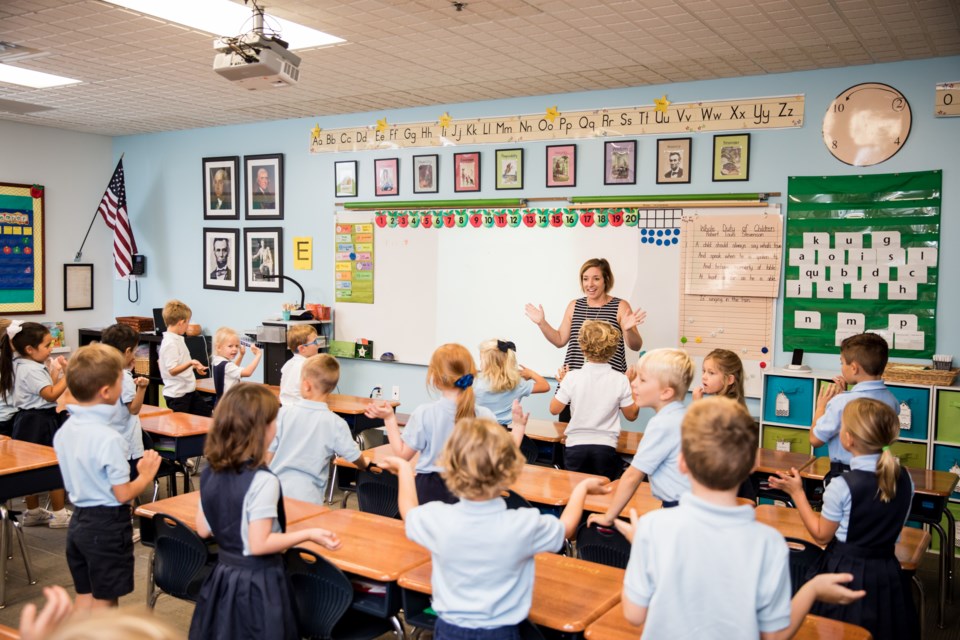With schools starting in July, parents should begin considering what they need to do now to prep their little ones for their first year of school.
Practicing self-independence, getting them into a controlled sleep schedule and even talking them through how to make a friend can help with this major milestone.
There are many proactive things parents can do now to help get their kids ready for their first day of kindergarten. A few important ones include:
Opening lunch boxes
Fine motor skills are still developing at this stage and kids might be on their own for the first time when it comes to opening their lunchboxes and opening packaged items. Make simple lunches at home and have them practice putting their straw in their juice pack, opening their yogurt or fruit, and working through their water bottles without your help. If your child has a scheduled lunch break, you can help them decide what food they need to save for lunch, and what to eat during the break. Practicing this skill at home can help your child feel more comfortable when it comes time to eat.
Social skills
If your child is shy, talk to them about introducing themselves to their classmates. Role play is a great way of practicing. You can have them introduce themselves to you as if you were one of their new friends. This will be one of their first times joining in on group conversations and making new friends so they might not know where to start. Showing your child how to share their toys with friends can also help them around recess and prevent fears they may have around playing.
Read aloud to your child
Introducing activities such as reading to your children at a young age can help them develop cognitive skills and improve many other academic areas. This introduction could be as simple as taking them to the library and checking out books. Reading aloud every night to your child will get them used to seeing words and letters. Use your finger to point to the words as you read so your child will see that print is read from left to right. If your child has trouble sitting still, slowly extend your reading time, starting with just a few minutes of sitting and working up to 15 to 20 minutes of sitting quietly.
Teaching responsibility
Sometimes, school is the first place where a child encounters someone other than their parent directing them, and a lot less independence. You can help with this by giving your child small chores to do around the house. Ask your child to put their plate in the sink once they are done eating or put them in charge of helping you with a simple chore. Let them experience doing something they don’t really want to do because it is helping the family. Age-appropriate tasks around the house will instill independence and can help them begin developing new life skills.
Develop a routine
As that first day approaches, help your child get in the habit of a regular routine. Sleeping in the same bed and waking up at the same time each day, eating breakfast soon thereafter and other activities can help kids develop a sense of before and after. Remember that 5 and 6 year olds still need 10.5 to 11.5 hours of sleep a night.
Practice fine motor skills
Kindergarten involves learning how to write for the first time which takes fine motor strength and control. Help your child to build up their fine motor skills by giving them things to cut with child-safety scissors, or by having them pick up small things with a pincher grip and put them into a container.
This milestone does not have to be a difficult transition. Make sure your child is ready for their first day of kindergarten by following these simple insights.
Leanne Fawcett is executive director of lower schools at Great Hearts Academies, a non-profit public charter school that includes K-12 grades with 22 locations across the Valley. For more information, visit greatheartsamerica.org.



